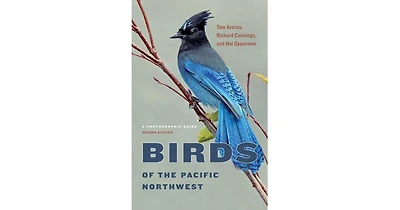Home
Race, Radicalism, Religion, and Restriction: Immigration in the Pacific Northwest, 1890-1924
Barnes and Noble
Loading Inventory...
Race, Radicalism, Religion, and Restriction: Immigration in the Pacific Northwest, 1890-1924 in Franklin, TN
Current price: $95.00

Barnes and Noble
Race, Radicalism, Religion, and Restriction: Immigration in the Pacific Northwest, 1890-1924 in Franklin, TN
Current price: $95.00
Loading Inventory...
Size: OS
In 1924 America passed legislation that effectively outlined which immigrants were to be considered beneficial to the national body and which were not. Albert Johnson, a Washington State Congressman, sponsored the Act. This study examines the role of the Pacific Northwest in the change of national sentiment that led up to this legislation. Throughout the period, this region experienced massive growth in its immigrant population. Its forests and small towns were the scenes of many clashes with the alien radicals, resulting in the creation of anti-Catholic legislation and the laws against land ownership by the Japanese. Analyzing issues of race, religion, and political radicalism, Allerfeldt determines that the region was highly influential in the national debate.
Most immigration studies of this era focus on the East Coast or on California, but Allerfeldt finds that Northwestern politicians and populists, responding to regional events as much as national sentiments, often set the national immigration agenda. Diverse organizations such as the APA, the Ku Klux Klan, and the IWW gained powerful local support and had significant influence on the region's attitudes towards immigrants. Rather than following California's lead in the opposition to Asian immigration, the Northwest actually set the path for its southern neighbor in many important aspects.
Most immigration studies of this era focus on the East Coast or on California, but Allerfeldt finds that Northwestern politicians and populists, responding to regional events as much as national sentiments, often set the national immigration agenda. Diverse organizations such as the APA, the Ku Klux Klan, and the IWW gained powerful local support and had significant influence on the region's attitudes towards immigrants. Rather than following California's lead in the opposition to Asian immigration, the Northwest actually set the path for its southern neighbor in many important aspects.
In 1924 America passed legislation that effectively outlined which immigrants were to be considered beneficial to the national body and which were not. Albert Johnson, a Washington State Congressman, sponsored the Act. This study examines the role of the Pacific Northwest in the change of national sentiment that led up to this legislation. Throughout the period, this region experienced massive growth in its immigrant population. Its forests and small towns were the scenes of many clashes with the alien radicals, resulting in the creation of anti-Catholic legislation and the laws against land ownership by the Japanese. Analyzing issues of race, religion, and political radicalism, Allerfeldt determines that the region was highly influential in the national debate.
Most immigration studies of this era focus on the East Coast or on California, but Allerfeldt finds that Northwestern politicians and populists, responding to regional events as much as national sentiments, often set the national immigration agenda. Diverse organizations such as the APA, the Ku Klux Klan, and the IWW gained powerful local support and had significant influence on the region's attitudes towards immigrants. Rather than following California's lead in the opposition to Asian immigration, the Northwest actually set the path for its southern neighbor in many important aspects.
Most immigration studies of this era focus on the East Coast or on California, but Allerfeldt finds that Northwestern politicians and populists, responding to regional events as much as national sentiments, often set the national immigration agenda. Diverse organizations such as the APA, the Ku Klux Klan, and the IWW gained powerful local support and had significant influence on the region's attitudes towards immigrants. Rather than following California's lead in the opposition to Asian immigration, the Northwest actually set the path for its southern neighbor in many important aspects.

















